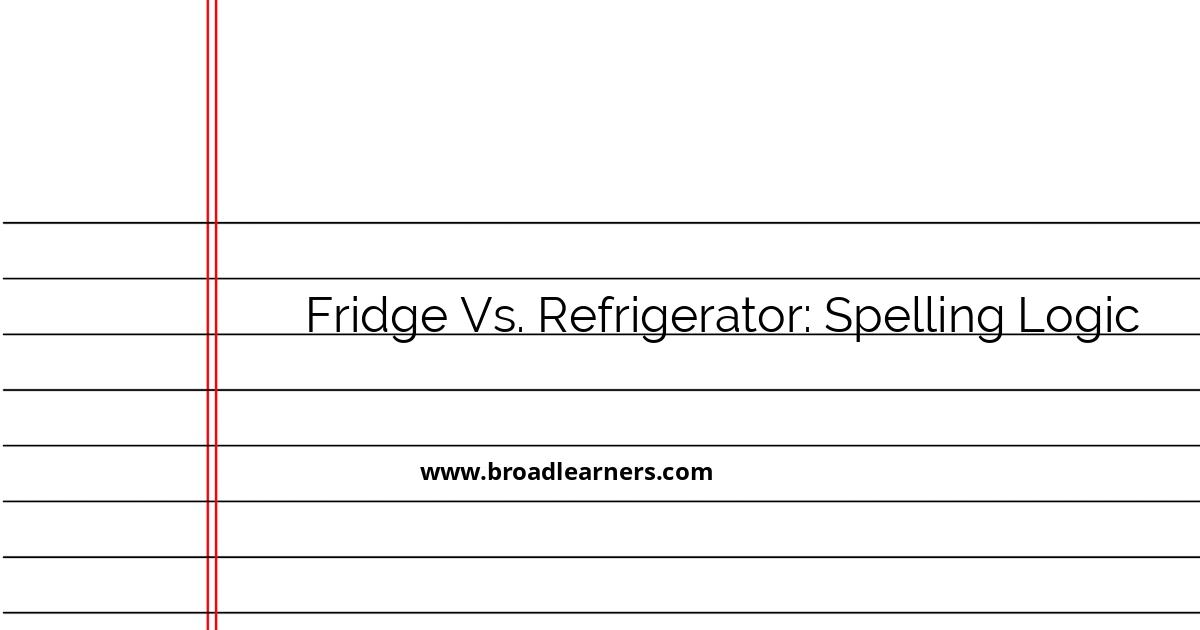The English language is full of surprises, and even commonly used words can sometimes lead to questions about their spelling and usage. One such query frequently encountered is the difference between 'fridge' and 'refrigerator.' Both words are used to refer to the same appliance, yet they feature different spellings. Let’s delve into the spelling logic behind these terms and clarify any confusion.
- The Difference in Spelling
'Refrigerator' is the full term used to describe the large household appliance designed to keep food and beverages cool. The word originates from the Latin word refrigerare, meaning 'to cool again.'
'Fridge,' on the other hand, is an informal short form or colloquial term of 'refrigerator.' It's commonly used due to its convenience and ease of pronunciation.
- Why the 'D' in Fridge?
The inclusion of the letter 'd' in 'fridge' might seem peculiar since it is absent from 'refrigerator.' The reason lies in making the pronunciation of the short form align with typical English spelling patterns. If 'fridge' were spelled 'frig,' it could lead to confusion or an incorrect pronunciation.
- Phonetic Spellings
The pronunciation of 'refrigerator' is: [rɪˈfrɪdʒəˌreɪtər]. The component of this pronunciation associated with 'fridge' in the full term is [frɪdʒ], which justifies the spelling of the short form 'fridge.'
For a better understanding, let’s examine the usage of both terms within sentences:
Fridge: Can you check if we have any milk left in the fridge? – This sentence uses the colloquial term commonly employed in everyday conversation.
Refrigerator: The technician will arrive tomorrow to repair the refrigerator. – Here, the formal term is used, which may be more appropriate in contexts requiring a degree of formality.
Examples Elaborated:
Example 1: Fridge Usage
Sarah asked, "Is there any ice cream in the fridge?" Sarah's inquiry uses the informal term, which is versatile for casual settings among friends or family.
Example 2: Refrigerator Usage
The appliance manual advises, "The refrigerator should be cleaned every few months to maintain efficiency." This example shows that in written instructions or formal writing, 'refrigerator' is preferred for its clarity and formality.
In conclusion, while both 'fridge' and 'refrigerator' refer to the same kitchen appliance, the choice between them often depends on the level of formality required in communication. Understanding the logic behind their spellings and usage ensures effective, error-free communication in both written and spoken English.

Did I miss anything? Respond below